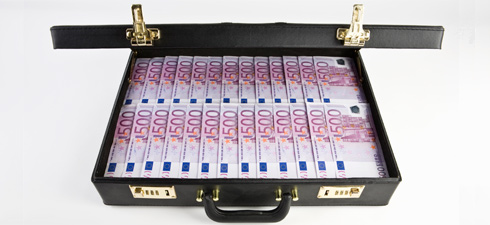How to turn 21 billion euros into 315 billion euros. This is essentially the goal of the European Fund for Strategic Investments (EFSI), the master plan which led Jean Claude Juncker to the presidency of the European Commission. The plan aims to reactivate the ailing economy of the region, and create 3.3 million jobs by 2017.
The new financial engineering laboratory in Brussels has solved the equation. This initiative would have a multiplier effect of 15 times its size in order to promote investments in transport and energy infrastructures – in the digital agenda, and through small and medium-size enterprises (SMEs) – in the next three years. To do this, the European Commission would have to allocate 16 billion euros of the Community budget, and the European Investment Bank (EIB) would have to put another 5 billion euros on the table. This would trigger private investment until it reached 315 billion. To this end, Juncker’s fund will combine loans, guarantees, and debt and equity financing to encourage risk-taking in the private sector.
The plan was officially presented to the European Parliament on 26 November. The Luxembourg President of the European Commission stated that “Christmas has come early” and that it is “the greatest effort in European history to mobilise the EU’s budget to trigger additional investment, and without changing the rules”, making a clear reference to Germany, which is the leading advocate of fiscal discipline.
Too late and not ambitious enough
It is unclear if governments, companies and markets believe in Santa Claus. The critics of Juncker’s plan, which will be up and running in mid-2015, stated that the proposed plan comes too late; it has no additional European funds and is based on financial engineering. It is true that public guarantees encourage investments. However, the initial amount appears to be insufficient. Whether the plan will rekindle weak private and public investment will largely depend on the selection of infrastructure projects, and on what treatment the countries involved will receive. Those who take part in the EFSI will receive “favorable treatment” when approving their budgets, according to the President of the Commission, as their contribution will not be counted as deficit.
2,000 viable projects
The Task Force, created by the Commission and the EIB, has identified 1.3 billion euros in more than 2,000 economically-viable projects in the European Union. According to this report, most of these projects had remained stagnant due to a lack of funding, and bureaucratic and regulatory barriers. The Vice-President of the European Commission, Jyrki Katainen, stated that: “The report shows there are huge investment needs and viable projects that could lift economic growth and open up more job opportunities in Europe.”
The truth is that the debt crisis that still affects Europe has dried up credit, public spending has suffered the severe adjustments of austerity policies and, at the same time, companies have reduced their leverage levels. Juncker hopes to have found the financial formula to unblock the situation, and bring investment on stream.



